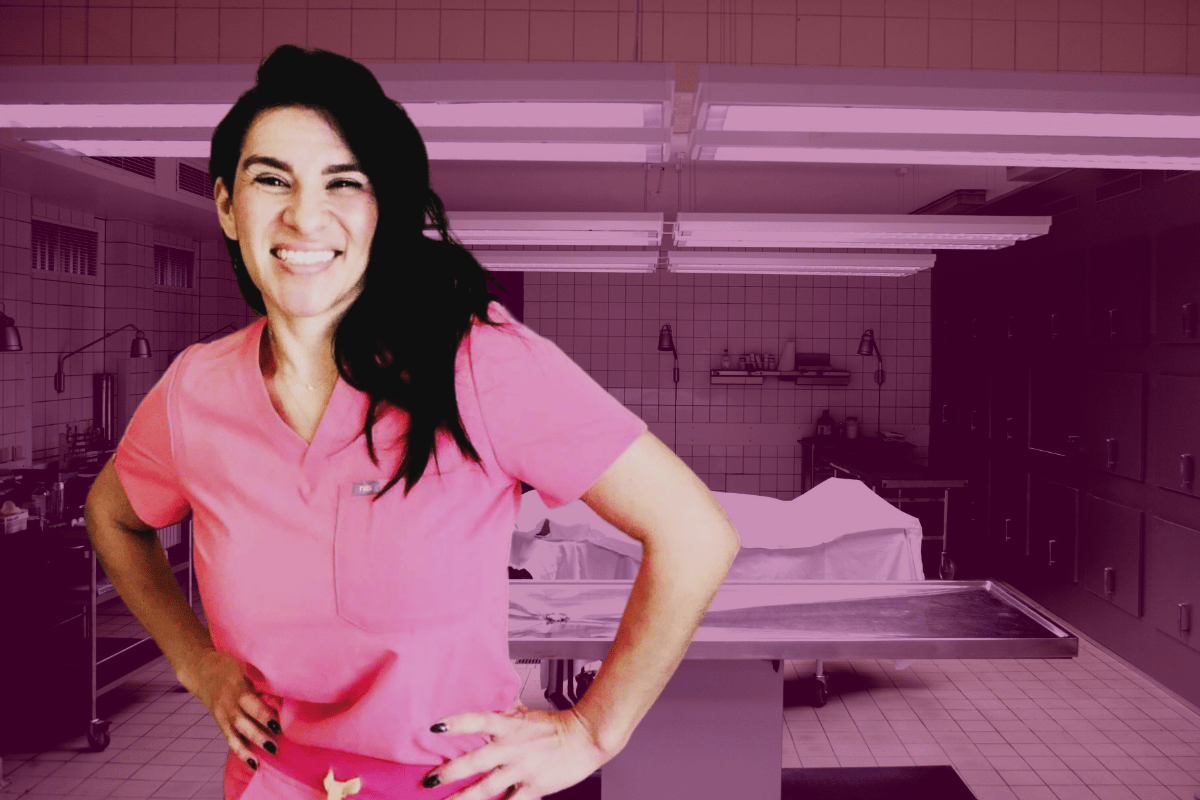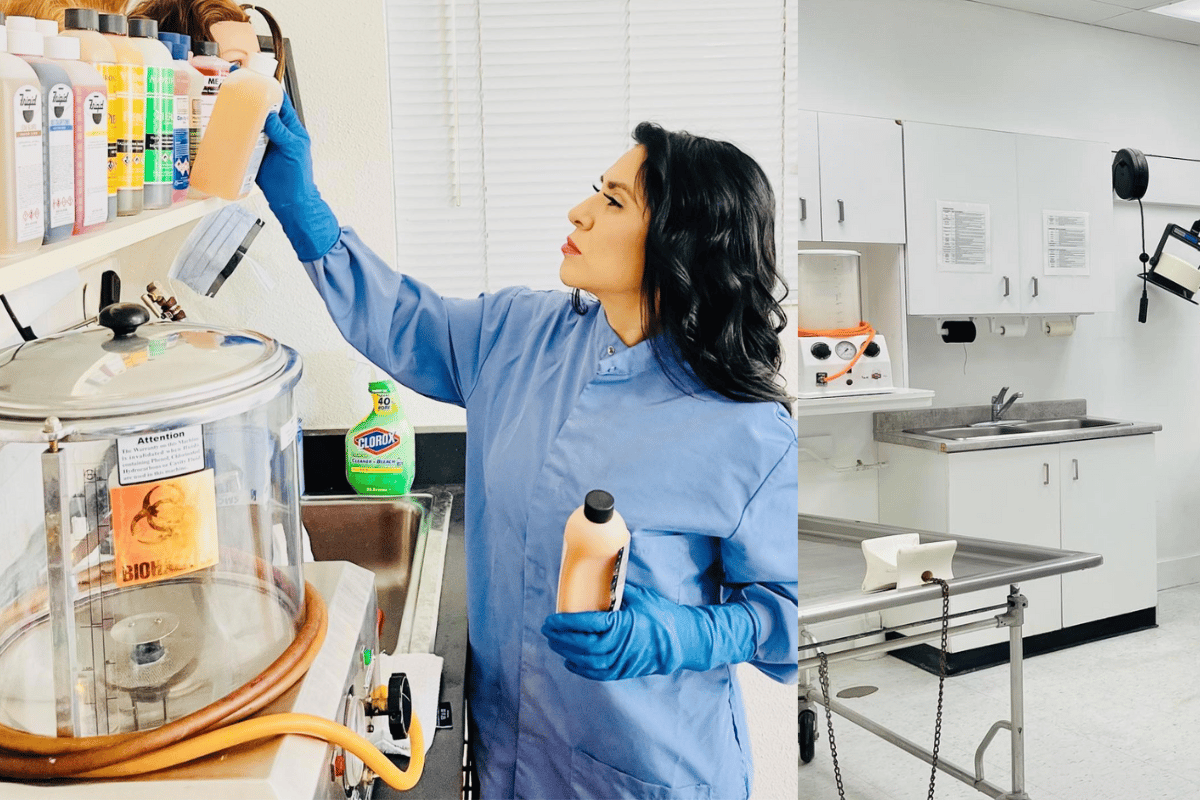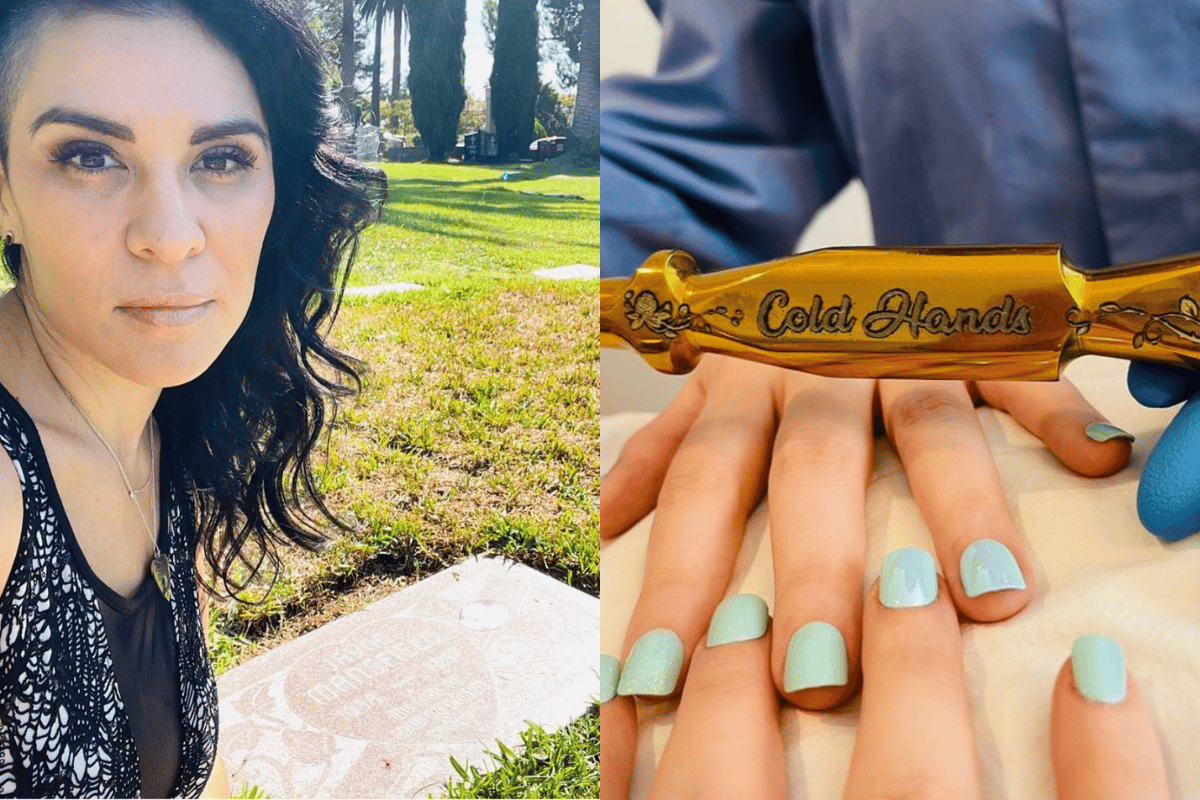
Content warning: This post includes discussion of suicide that may be distressing to some readers.
When I say the word 'mortician' what comes to mind?
Perhaps a dimly lit medical room located in the depths of the morgue, with a cold, steel embalming table located in the centre. Maybe you immediately think of the mortician themselves - more often than not it's a man, and someone who is fascinated with death and dying.
For Monica Torres, she doesn't exactly fit the stereotype that looms in people's minds about morticians.
For one, she's a woman who has made waves in the industry, paving the way for other females to join the world of caring for the dead.
Monica is also someone who is intrigued by all things death, so perhaps she fits one of the stereotypes. She loves to visit and tour cemeteries. She loves black cats. She also sells socks that have little skull motifs on them.
But Monica is anything but 'sullen' or 'spooky'.
She's a person who radiates warmth, regularly wears hot pink scrubs, has a killer makeup routine, and willingly shares the ins and outs of her incredible job with anyone who is interested. And I just happen to be one of those people who is intensely keen to peek behind the mortician's curtain and see what it's really like to work among the deceased.
***
14 years ago, Monica began her journey to care for the dead and comfort the grieving.



Top Comments